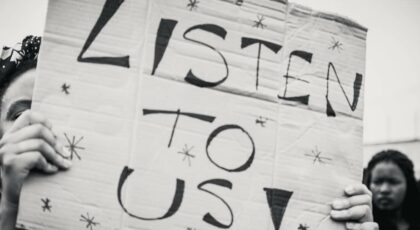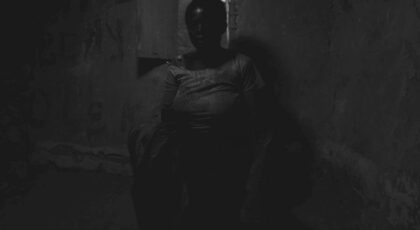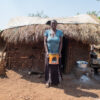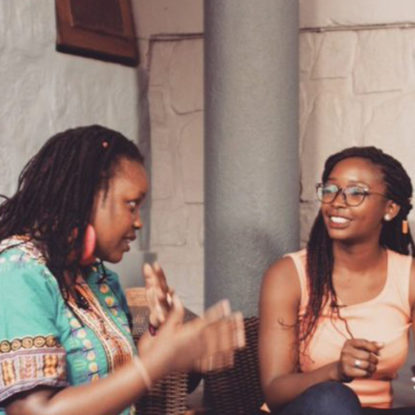The passing of the Sexual Offences Bill came just weeks after the release of Uganda’s 2020 crime report, which saw domestic violence rise by 29 percent and statutory rape increase by 3.8 percent amid a national lockdown. The Bill covers a wide range of issues such as establishing a national sex offenders register and legislates against an array of crimes including workplace harassment, child rape, sex tourism, sex trafficking and child marriage. However, while offering provisions designed to prevent and punish sexual violence, it also further criminalizes lesbian, gay, bisexual, and transgender (LGBT) people and sex workers. The Bill in Clause 40 even provides that if Ugandans perform these sexual acts outside Uganda, they can be prosecuted in Uganda. This provision only serves to heighten homophobia and further expose the LGBT community to the very violence that the Bill would otherwise aim to curb.
This Bill also criminalizes false accusations, “where a person makes false or misleading allegations against another person to the effect that the person has committed an offence under this Act”. The provision emboldens especially those perpetrators who yield power and influence, and often counter-sue victims on claims of defamation – an intimidation and consequently, silencing tactic.
The evidence of fewer victims of sexual violence willing to report cases, coupled with the many hurdles within the justice system does not help. More than half of the survivors that talked to VICE World News for their investigation into police mismanagement of gender-based violence cases in Uganda said they “experienced corrupt handling of their cases, and many felt they were not being taken seriously or were victim-blamed when they went to the police.” Many perpetrators used their money and influence to criminalize the survivor as well according to the report. The clause is essentially, also unnecessary as the very task of the justice system is to find whether the accused is innocent or guilty, and therefore criminal procedures as they already were are capable of covering any issues of false accusations.
The final version of the Bill is without the clause on “consent”, which was meant to recognise that women can withdraw consent before or during a sexual act. Justification given for this clause’s removal was that Members of Parliament (MPs) failed to agree on a definition, with male MPs arguing that consent could not be measured. During the plenary discussion on the matter, MPs argued that women should not withdraw consent during sex with one even using an analogy of a plane flight: “Consent is given at takeoff, we have all taken planes, so if we are in the middle of a flight, you can’t tell the pilot to stop”. They also argued that the clause would be used by women to extort politicians and went further to threaten withdrawing support for the Bill should the consent clause be retained. Removal of this clause not only absolves perpetrators, it also creates a conducive environment to burden victims with the task of proof even before they can make a police report, much less get a conviction.
On the sharing of what is termed as: digital explicit content on the internet and social media platforms, the Sexual Offences Bill stipulates at least seven (7) years in prison for anyone who shares said content. It should be noted that Uganda already has an Anti-Pornography Act which while it includes these provisions, has often been used disproportionately against women, with enforcers calling for the arrest of victims of non-consensual distribution of intimate images or “revenge porn”, on multiple occasions.
The passing of the Sexual Offenses Bill (SOB) in Uganda has also laid bare the limitations of organising within legislative advocacy and NGO structure. While feminists decried the criminalization of sexual minorities and sex workers, some women rights activists in legislative and civil society argued for the bill on grounds of some good clauses for women that would be a progressive step. However, how could this be considered a win for women when it further criminalises LBT women and sex workers? It is crucial that the women’s movement move from the acceptance of crumbs as discarded by patriarchal structures – especially when those crumbs exclude the freedom and protection of some women.
While the movement should remain vigilant against the existing bad laws and poor implementation of the same, we need to actively seek alternatives to legislative advocacy. Only 5% of Ugandans ever turn to the courts, so even with the presence of laws, the vulnerable and marginalized are still not protected. Further, in drafting laws, we give power to oppressors to make decisions on what protections we do or do not deserve. As feminist scholar and activist Audre Lorde so accurately put: “…the master’s tools will never dismantle the master’s house. They may temporarily allow us to beat him at his own game, but they will never enable us to bring about genuine change.”
The plenary session on the Bill clearly showed that we cannot leave the protection and promotion of women’s rights in the hands of decision makers, who clearly deliberated on women’s issues like they were a joke. Picking lessons from other laws such as the Domestic Violence Act, the Marriage and Divorce Bill, Succession Bill, we must learn that the law is simply not enough in protecting and that there can never be any benefit when we compromise and negotiate with patriarchy. Maybe now we can all begin radically organizing towards feminist alternatives to our liberation.












